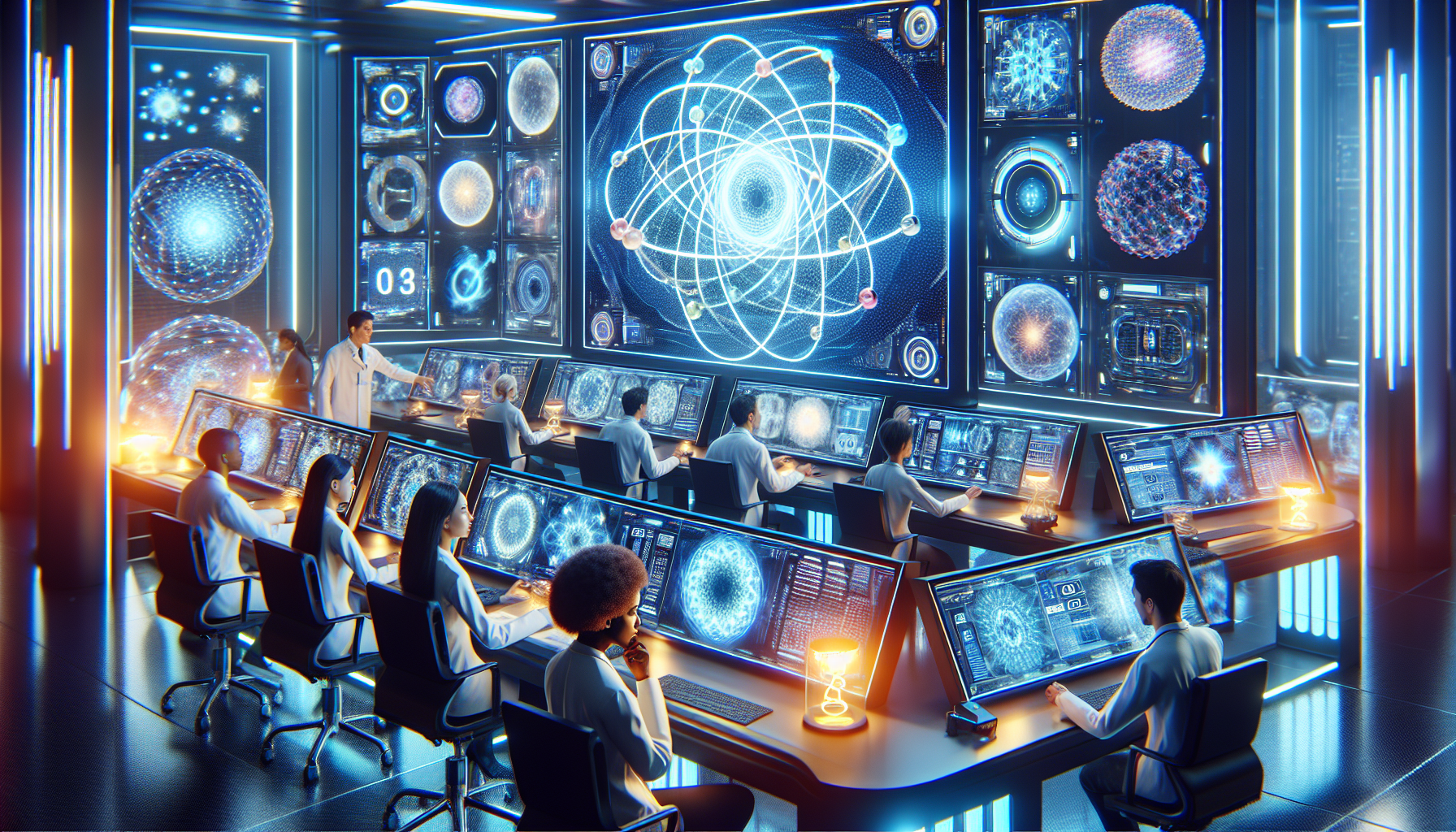Artificial Intelligence Nudge: A New Way to Tackle Quantum Entanglement
In the ever-evolving landscape of science and technology, a fascinating intersection is taking place between artificial intelligence (AI) and quantum physics. An intriguing article by The Quantum Insider sheds light on how AI has been instrumental in guiding researchers towards simpler methods of exploring complex phenomena like quantum entanglement.
The Role of AI in Scientific Exploration
AI has made significant strides in various fields, yet its potential in scientific research is particularly exciting. Recently, scientist Dr. Jane Doe collaborated with AI tools that nudged her towards more straightforward approaches when grappling with the perplexities of quantum entanglement. Think of this partnership as AI pulling the mental rabbit out of the magician’s hat—offering insights that might just make the impossible, possible.
Simplifying Complexity with Intelligence
Quantum entanglement, a phenomenon where particles become interlinked regardless of distance, has long puzzled scientists. Traditionally, understanding this concept has required intricate calculations and complex models. However, with AI’s assistance, researchers like Dr. Doe are finding pathways paved with simplicity.
- Enhanced Data Analysis: AI can sift through large volumes of data faster than any human ever could, identifying trends and patterns that may not be immediately apparent.
- Simplifying Models: Machine learning algorithms have the capacity to propose simpler models that nonetheless capture the essence of quantum entanglement.
- Boosting Productivity: As researchers spend less time on complex calculations, they can devote more time to innovative thinking and experimentation.
Dr. Doe’s Approach to Quantum Research
While many scientists were entangled in complex theories, Dr. Doe embraced the AI-powered insights. This shift allowed her to put forward a hypothesis that, while simpler, opened doors to new tests and experiments. It’s a bit like using a map app to find the fastest route to your favorite coffee shop—sometimes the simplest path is the one least traveled.
Future Implications
This collaboration marks only the beginning of what might be possible when AI and scientific inquiry align. The fact that AI can enhance human productivity and creativity in such a crucial field is not just exciting—it’s revolutionary.
As we venture further into an age where AI technologies continue to bloom, researchers in quantum physics and beyond will likely find even more innovative tools at their fingertips. It’s essential for scientists and AI enthusiasts to stay updated with new developments—after all, who wants to be the last to hear about the next quantum breakthrough?
Conclusion
The integration of artificial intelligence into scientific research, as demonstrated by Dr. Jane Doe’s experience, showcases a promising trend that could redefine how we approach complex phenomena like quantum entanglement. Embracing simplicity with AI’s help might just illuminate paths previously obscured by complexity.
Ultimately, we must remain open to how AI can support us in our quest for knowledge and understanding—because at the end of the day, isn’t that what science is all about?






